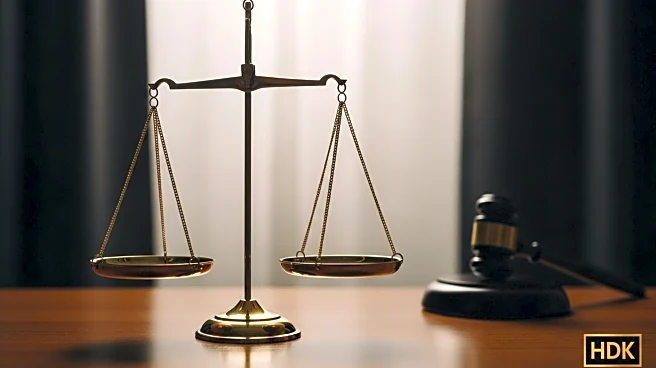What's Happening?
The U.S. Supreme Court is set to hear a significant case regarding Colorado's ban on conversion therapy for LGBTQ+ minors. The case will examine whether the state's law infringes on a counselor's free speech rights. Kaley Chiles, a licensed counselor, is challenging the ban, arguing that it restricts her ability to communicate certain messages to clients. The Trump administration supports Chiles, asserting that Colorado's law suppresses one side of a debate within the mental health community. Colorado, however, maintains that conversion therapy is harmful and ineffective, citing evidence of its negative psychological impacts. The American Psychological Association supports Colorado's stance, emphasizing the potential harm of conversion therapy.
Why It's Important?
This case holds significant implications for LGBTQ+ rights and the regulation of mental health practices in the U.S. A ruling in favor of Chiles could set a precedent that impacts similar laws in over 20 states that have restricted conversion therapy. It raises questions about the balance between free speech and state regulation of healthcare practices. The outcome could affect the mental health and well-being of LGBTQ+ minors, as well as influence future legislative efforts to protect vulnerable populations from potentially harmful practices.
What's Next?
The Supreme Court's decision could lead to changes in how states regulate mental health practices, particularly those involving minors. A ruling against Colorado's ban might encourage challenges to similar laws in other states, potentially leading to a rollback of protections against conversion therapy. Conversely, upholding the ban could reinforce state authority to regulate healthcare practices deemed harmful. The case is likely to attract attention from advocacy groups, policymakers, and the public, influencing ongoing debates about LGBTQ+ rights and mental health care.
Beyond the Headlines
The case highlights the ongoing cultural and legal battles over LGBTQ+ rights in the U.S. It underscores the tension between religious beliefs and scientific consensus in shaping public policy. The decision could have long-term implications for how mental health services are provided and regulated, particularly for marginalized communities. It also raises ethical questions about the role of government in protecting individuals from practices considered harmful by major medical organizations.








